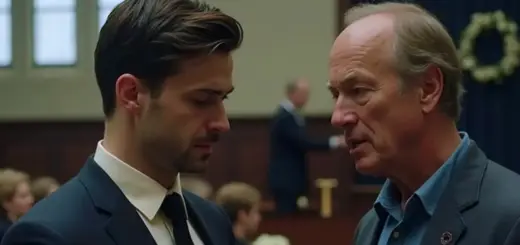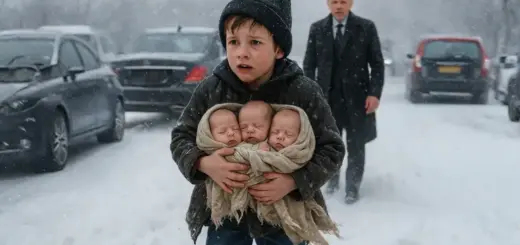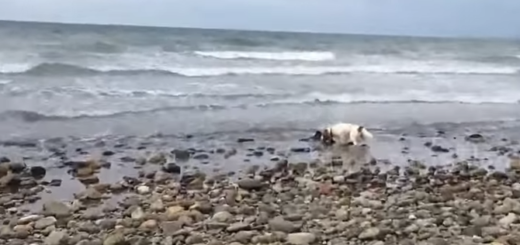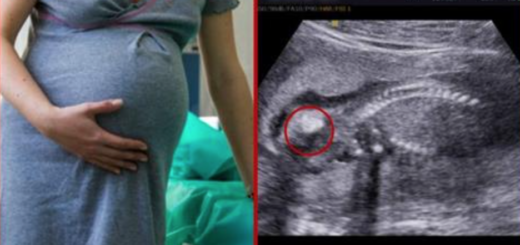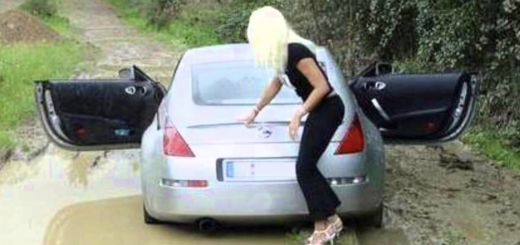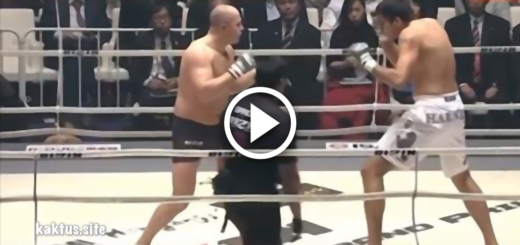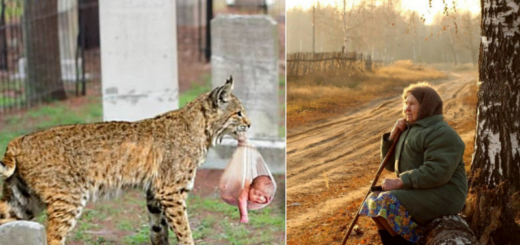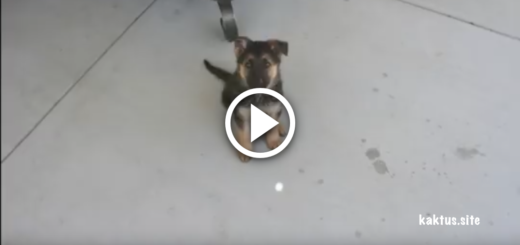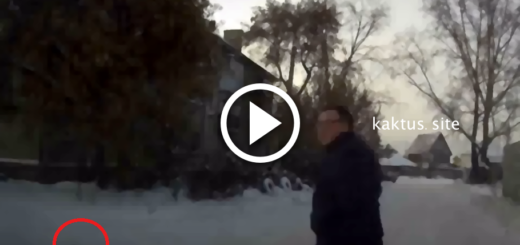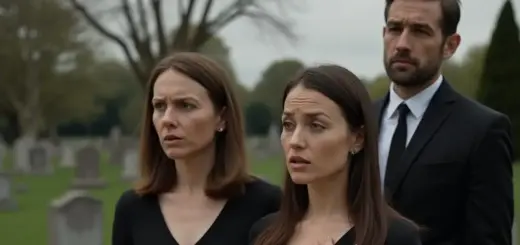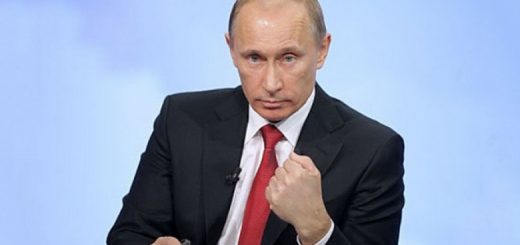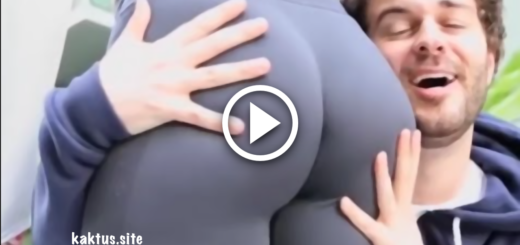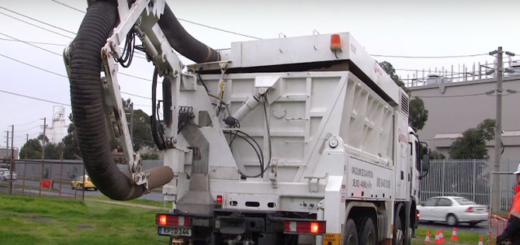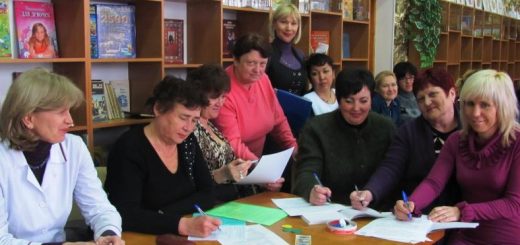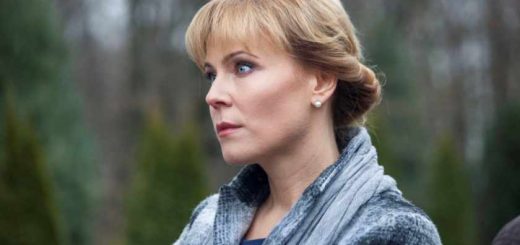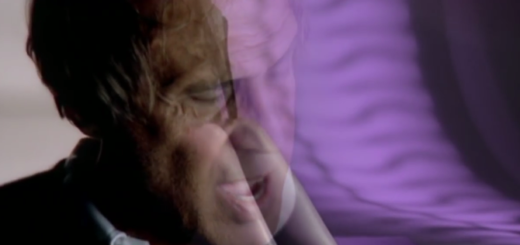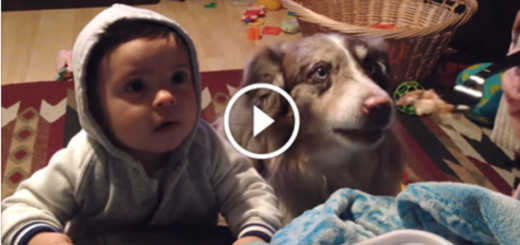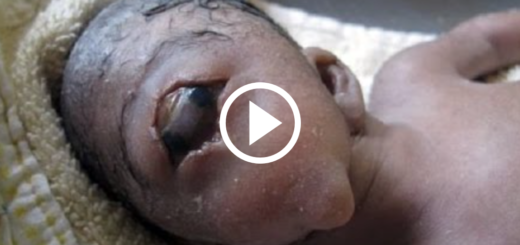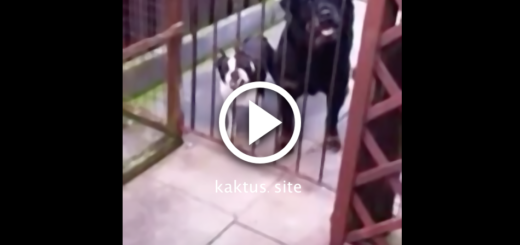Outside the courthouse, Melody walked past me with the kids. Colton tried to stop, but she pulled him along. “Don’t make this harder than it needs to be,” she said loudly enough for everyone to hear.
Brent Caldwell stopped beside me. “You should have just let her go when you had the chance, Vernon. Some men aren’t meant to play in the big leagues.”
“I loved her.”
“And that was your first mistake. Love is for people who can afford it.”
That night, I moved into the Sunset Valley Motel, $39 a night paid weekly. The owner, Mrs. Chen, had kind eyes and didn’t ask questions when I paid in wrinkled cash.
“Room 107,” she said, handing me the key. “It’s quiet. You look like you need quiet.”
The room smelled like cigarettes and failure. One bed, one chair, a TV that got three channels. I sat on the bed and called Dalton.
“I lost everything, Dal. My kids, my wife, my entire life.”
“You didn’t lose everything, Vern. You’re still here, and as long as you’re here, you can fight back.”
“With what? I have nothing left to fight with.”
“You have us. Me, Mom, Dad—we’re not giving up on you.”
But sitting in that motel room, looking at the water-stained ceiling, I’d given up on myself. I’d done everything right, everything a good man was supposed to do, and it had all been for nothing. Melody was living in a mansion with her lawyer, my kids thought I was a failure, and I was eating canned beans in a motel that rented rooms by the hour. Three weeks passed in a blur of day labor and silence. I stopped answering my family’s calls, stopped hoping things would get better. Then came the knock at two in the morning that would change everything.
Theodore Ashford’s revelations about Melody’s fake cancer hung in the motel room air like smoke from a fire I couldn’t see. I stared at the documents spread across my bed, each one more damning than the last: bank statements from the Cayman Islands, text messages between Melody and Dr. Vance planning appointment times when I wouldn’t be able to attend, photos of her with Brent Caldwell dated two years ago, long before her «diagnosis.»
“This can’t be real,” I said, my voice hoarse. “I saw her suffer—the vomiting, the weight loss, the fear in her eyes.”
Theodore pulled out a medical report. “Ipecac syrup induces vomiting. Phentermine causes rapid weight loss. Anxiety medications create realistic panic symptoms. Dr. Vance prescribed all of these under the guise of managing treatment side effects. Your wife was essentially poisoning herself just enough to seem sick while you destroyed your life to save hers.”
I stood up too fast, and the room spun. “I need air.”
“There’s more, Mr. Hutchins.”
“More? What more could there possibly be?”
Theodore handed me a transcript. “This is a recorded conversation between Melody and Caldwell from three days before she asked for the divorce. Would you like me to read the relevant portion?” I nodded, unable to speak.
Theodore’s voice was steady as he read. “Caldwell says, ‘Is Vernon suspicious?’ Melody responds, ‘He’s too exhausted to think straight. The fool sold his wedding ring yesterday. Actually cried at the pawn shop, according to Mr. Goldstein.’ Caldwell laughs and says, ‘Perfect. File the papers Monday. By the time he figures anything out, we’ll be in Bermuda with his money.’”
The rage hit me like a physical force. I punched the wall, leaving a hole in the cheap drywall. My knuckles bled, but I didn’t feel it. “They laughed about it. She watched me sell my grandfather’s ring and laughed about it.”
“Your father suspected something when Melody refused to let him visit during treatments. She claimed it was too emotional for her, but your father knew better. He hired me six months ago.”
“Six months? I’ve been living in this hellhole for six months.”
“We needed ironclad evidence. Your ex-wife was very careful. One wrong move, and she would have disappeared with the money and your children. We had to build an airtight case.”
Theodore pulled out his phone and showed me a video. It was Dr. Vance in what looked like an FBI interrogation room.
A voice off-camera stated, “Dr. Harrison Vance, you are confessing to medical fraud, insurance fraud, and conspiracy to commit financial fraud in exchange for a reduced sentence. Is that correct?”
“Yes,” Vance replied, his face pale and sweating. “Melody is my cousin. She came to me two years ago with this plan. She said her husband was getting boring, that she deserved better. She wanted out but needed money to start over. I told her it was insane, but she offered me thirty percent of whatever she collected. I have gambling debts. I needed the money.”
The video continued. “She never had cancer?”
“Never. Every scan I showed Vernon was from other patients, edited with Melody’s information. Every treatment was fake. The whole thing was an elaborate con.”
Theodore paused the video. “There are three hours of his confession. He details everything, including how Melody started her relationship with Caldwell before the fake diagnosis. Caldwell actually gave her the idea after handling another client’s divorce where the spouse had cancer.”
I sat back down on the bed, my head in my hands. “My kids. Oh, God, my kids think I’m a failure.”
“About that,” Theodore said, pulling out another document. “Your father has been meeting with them secretly. Two weeks ago, he showed them some of this evidence. They know the truth now, Vernon.”
“What? Your son, Colton, called your father after finding his mother shredding documents. He knew something was wrong. Your father told them everything. They’re at his house right now, waiting for you.”
“But the custody order says I can’t see them without supervision.”
Theodore smiled. “That custody order is about to become irrelevant. In approximately four hours, at 6:00 a.m., the FBI will arrest Melody and Brent Caldwell. The charges include medical fraud, insurance fraud, conspiracy, money laundering, and custodial interference. Dr. Vance was arrested yesterday and is currently in federal custody.”
“This is really happening?”
“It’s happening. Your father also wanted me to tell you something else.” Theodore pulled out a deed. “He bought your house the day you sold it, using a shell company to hide the purchase from Melody. It’s been waiting for you.”
I looked at the deed—my address, the house I’d built with my own hands. “Dad bought my house.”
“He also kept your business licenses current, maintained your contractor’s insurance, and has been turning away clients who wanted to hire Hutchins Construction, telling them you’d be back soon.”
The tears came then. My father, who I’d pushed away out of pride, had been fighting for me this entire time.
“There’s one more thing,” Theodore said. “Chester Pike and your construction crew have been meeting at your father’s house every Sunday. They’ve been refusing other permanent jobs, doing day labor just like you, waiting for you to come back. Your father’s been helping them financially when they’ve needed it.”
I couldn’t speak. My throat felt closed with emotion.
Theodore stood to leave. “Your father wanted me to give you this.” He handed me car keys. “Your truck is in the parking lot. He’s been maintaining it.” He then gave me a business card for Theodore Ashford, Private Investigator. On the back, in my father’s handwriting, it read: Son, a man isn’t measured by what he loses, but by what he’s willing to sacrifice for family. You sacrificed everything. Now let your family help you rebuild. No more pride. Just come home. Dad.
“Mr. Hutchins,” Theodore said at the door, “your ex-wife thought she broke you. She thought you were weak for giving everything to save her, but she never understood that your strength wasn’t in what you owned. It was in what you were willing to lose for someone you loved. That’s not weakness. That’s the kind of strength most people will never have.”
After he left, I sat in the darkness of room 107 for an hour, processing everything. Then I got up, showered, put on my last clean shirt, and walked out to the parking lot. My truck was there, gleaming under the streetlight—same crack in the windshield from where Colton had hit a baseball two years ago, same coffee stain on the driver’s seat from when Piper knocked over my mug rushing to get to school.
I drove to my father’s house as the sun came up. The entire family was on the front porch. Colton and Piper ran to the truck before I could even park.
“Dad!” Piper sobbed against my chest. “We’re so sorry. Mom made us say those things in court. She said she’d send us to military school if we didn’t.”
Colton, trying to be strong but failing, hugged me harder than he ever had. “I knew something was wrong, Dad. The way Mom laughed about selling the house… it wasn’t right. Grandpa showed us the truth. She’s evil, Dad. She’s actually evil.”
My father stood on the porch, my mother beside him. He looked older but satisfied, like a general who’d finally won a long war.
“Son,” he said simply.
“Dad, I don’t know what to say.”
“Then don’t say anything. Just come inside. Your mother made breakfast, your crew is on their way over, and we have a business to rebuild. But first, we eat. You look like hell.”
As we walked inside, my phone rang. An unknown number. “Mr. Hutchins, this is Agent Sarah Coleman with the FBI. We have Melody and Brent Caldwell in custody. We’ll need you to come to the federal building this afternoon to give a statement.”
“Are they going to prison?”
“Mr. Hutchins, with the evidence we have, they’re both looking at fifteen to twenty years, minimum. The money has been frozen and will be returned to you as restitution.”
I hung up and looked at my family. “They got her.”
My mother started crying. Dalton whooped and punched the air. My father just nodded. “Justice,” he said quietly. “Now, we rebuild.”
Six months after that morning at my father’s house, I stood in my rebuilt workshop, running my hands over the same workbench where I’d taught Colton to use a hammer. The FBI had been thorough. Melody got twelve years in federal prison for fraud, conspiracy, and money laundering. Brent Caldwell got fifteen years plus disbarment. Dr. Harrison Vance lost his medical license and got eight years.
The court ordered full restitution, though most of the money was gone. What they recovered went toward rebuilding my business, but the money wasn’t what mattered. What mattered was the Saturday morning I was living right now, with Colton and Piper working beside me on a custom bookshelf for their grandmother.

